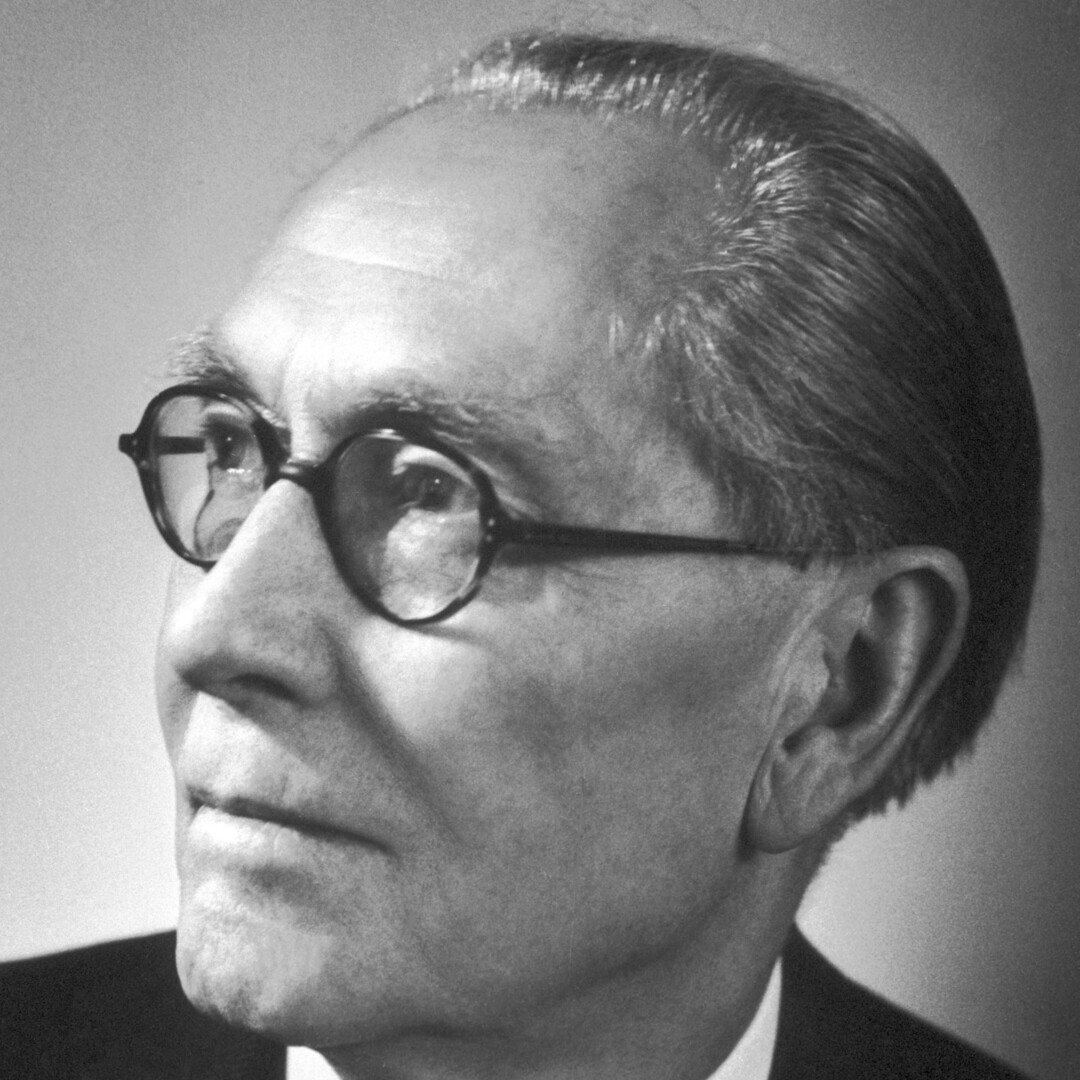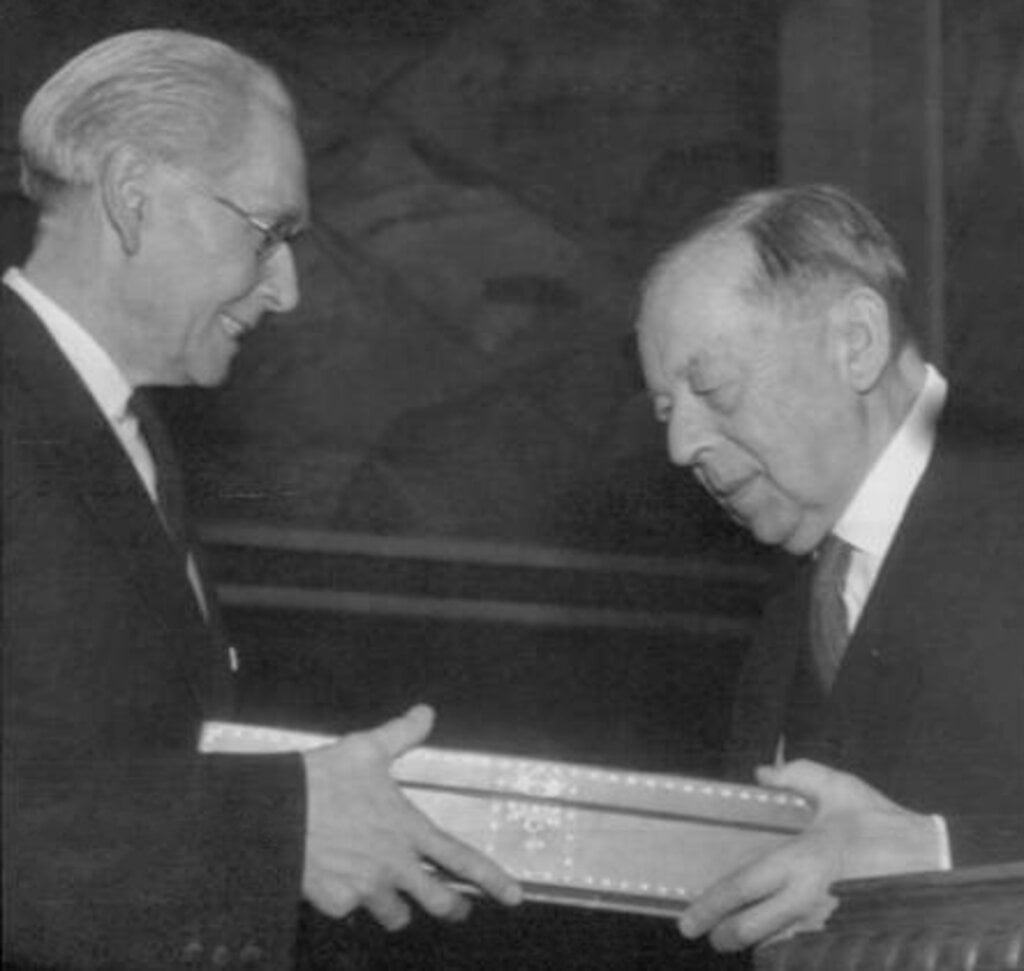Philip Noel-Baker
Speed read
Philip J. Noel-Baker was awarded the Nobel Peace Prize for his longstanding contribution to the cause of disarmament and peace.

Full name: Philip John Noel-Baker
Born: 1 November 1889, London, United Kingdom
Died: 8 October 1982, London, United Kingdom
Date awarded: 5 November 1959
Internationalist for disarmament
Philip Noel-Baker took part in the Hague Peace Conference of 1907, when the major powers refused to enter into disarmament agreements. When WWI erupted, Noel-Baker was convinced that the arms industry bore a large part of the blame for the outbreak of the war and the bloodbath that ensued. He thus devoted his life to the fight for disarmament. Noel-Baker worked for the League of Nations, along with Nobel Peace Prize laureates Fridtjof Nansen, Normann Angell and Lord Robert Cecil. During and after WWII he was a member of the British government. Noel-Baker helped to formulate the UN Charter, and he worked intensively for the rest of his life to prevent an outbreak of nuclear war between the USA and Soviet Union, which he maintained would eradicate the human race.
"Noel-Baker repeatedly emphasizes that the arms race in itself is one of the main causes of war."
Gunnar Jahn, Chairman of the Nobel Committee, Presentation Speech, 10 December 1959.
Breakdown of the League of Nations
In 1932 Noel-Baker witnessed the failure of the League of Nations Disarmament Conference, while Japan, Italy and Germany conducted an increasingly aggressive policy toward Asia, Africa and Europe. The League of Nations member states were unable to agree on how to stop the belligerent countries. In 1938, when the United Kingdom and France gave Hitler free reign to conquer Czechoslovakia, Noel-Baker, a pacific and Quaker, concluded that fascism had to be met with armed force; otherwise democracy throughout the world would be in jeopardy.
"We have a pack of wolves, the modern weapons, howling at our heels."
Philip Noel-Baker, Nobel Lecture, 11 December 1959.
Could disarmament be achieved under the UN?
After 1945, the nuclear arms race began in earnest between the USA and Soviet Union. Noel-Baker believed that the UN should be given control of all nuclear weaponry, but neither of the superpowers would agree to this. In 1958 Noel-Baker published a book about his pursuit of disarmament from 1919 to the 1950s. His primary message was that the average person should become involved in the fight – and that the USA and Soviet Union must dare to trust the other party’s willingness to disarm. The award of the Nobel Peace Prize to Noel-Baker a year later was met with overwhelming approbation the world over. Not surprisingly, Noel-Baker donated his prize money to disarmament efforts under the auspices of the UN.

"The source of the drive that carried him through almost seven decades of peacemaking lay in his Quaker background."
Irwin Abrams: The Nobel Peace Prize and the laureates, page 184, Science-History Publications/USA.
Learn more
The Right Honorable Philip John Noel-Baker is a man of strong and steadfast convictions. To a reporter who interviewed him after the Norwegian Nobel Committee announced that he had been awarded the Peace Prize, he said, "War is a damnable, filthy thing and has destroyed civilization after civilization – that is the essence of my belief" ...
Disclaimer: Every effort has been made by the publisher to credit organisations and individuals with regard to the supply of photographs. Please notify the publishers regarding corrections.
Nobel Prizes and laureates
Six prizes were awarded for achievements that have conferred the greatest benefit to humankind. The 12 laureates' work and discoveries range from proteins' structures and machine learning to fighting for a world free of nuclear weapons.
See them all presented here.
